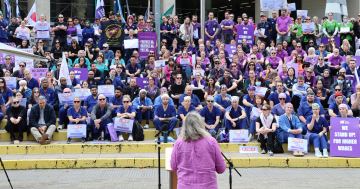 United Kingdom unions have accused the Government of treating Public Servants worse than workers elsewhere in the public sector after a pay deal was agreed with National Health Service (NHS) workers.
United Kingdom unions have accused the Government of treating Public Servants worse than workers elsewhere in the public sector after a pay deal was agreed with National Health Service (NHS) workers.
If approved by union members, the NHS agreement will see nurses, ambulance crews and other health workers get a five per cent pay rise next year and a backdated bonus in 2022-23.
The agreement was reached after the Government offered the negotiations and additional cash in exchange for unions halting strikes.
In stark contrast, Cabinet Office Ministers have refused to even open negotiations on this year’s pay offer to other Public Servants and have not made any concessions to end strikes.
They have, however, indicated that inflation will be “partly” reflected in the 2023-24 deal, after giving Public Servants a two-to-three per cent pay rise this year amid soaring inflation.
Prospect, which kicked off its industrial action in the current dispute on 15 March with its biggest walkout in a decade, said the NHS deal could be “a template for unlocking disputes elsewhere in the wider public sector”.
The union’s General Secretary, Mike Clancy said the Government would need to start treating Public Servants more fairly for a deal to be reached.
“Our members are highly-skilled professionals and are rightly sick of being treated as the poor relation to those doing similar jobs in the private sector and other parts of the public sector,” Mr Clancy (pictured) said.
General Secretary of the Public and Commercial Services (PCS) union, Mark Serwotka questioned how the Government had been able to produce a pay offer for nurses, while declining to begin negotiations for other parts of the public sector.
“It is great news that progress has been made in talks with health leaders, but the Government has displayed utter contempt for its own workforce,” Mr Serwotka said.
He said that PCS members had been offered the lowest pay increase across anyone in the public sector at two per cent.
“Many of these workers feel they have no choice but to stage lengthy strikes because many are living in work poverty,” Mr Serwotka said.
London, 20 March 2023











